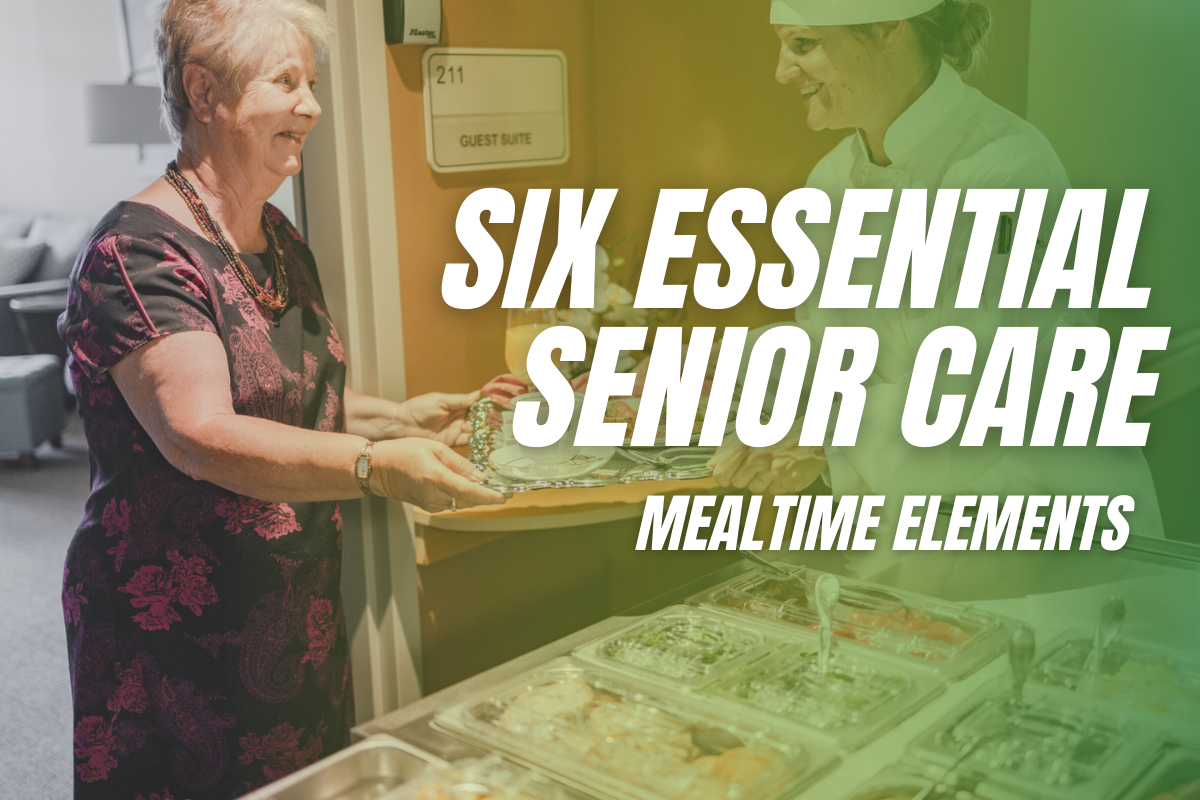
No matter who we are or where we live, mealtimes are often some of the most enjoyable moments of the day. We get to spend time with friends and family. We can order or decide to cook things that will meet our cravings. And we can take a few moments to slow down and relax. For residents of senior or long-term care communities, meals can provide the exact same benefits.
“Mealtimes are a mainstay of life through which residents’ experiences are characterized, exemplified, and magnified,” one study found. To understand just how important meals can be, consider this. They play an integral role in the emotional and psychological connections residents feel with other residents. Meals can help residents manage competing interests with limited resources, and they can provide an element of familiarity and routine that is so important.
On an even more granular level, food and mealtimes can provide three critical components. First, they bring people together. Through what are traditionally communal dining spaces (an area that has been challenging during the Covid pandemic), opportunities are created for socialization that are critical to a person’s mental health.
Second, food provides a sense of control. In a senior care community, this can mean selecting a certain entrée off a menu or even choosing to double up on a helping of green beans instead of receiving a plate of mashed potatoes a particular diner might not even like. With a demographic that tends to lose control of many health-related issues, having control at the dinner table can enhance the importance of mealtime.
Finally, meals provide structure and routine. These points of the day can provide much-needed stabilization and familiarity. In some situations, due to deteriorating mental capacities, the structure meals provide can be critical to a resident’s well-being.
The 3 Principles for Successful Senior Care Dining
Now that we understand the importance of senior care foodservice, what does a successful operation look like? This is an important question, and no matter where you end up in the ensuing discussion, that conversation must always begin with the safety of the residents. First and foremost, successful senior care foodservice should be safe and nourishing, promoting the overall good health of those who eat the food.
According to the Pioneer Network, food and dining are the core components of quality of life in long-term care communities, and they can be defined in three important ways.
STATEMENT 1: Choice of food has a tremendous impact on quality of life.
In fact, some say it actually defines it. Food can provide many amazing benefits, and those positive attributes begin with choices. Ask a few simple questions. What does the resident want? For example, how did he or she do things before moving in, and how can those things be replicated within the community's foodservice program? What to eat, when to eat, where to eat, and with whom are all important things to determine.
STATEMENT 2: We do not assume that just because residents may not be able to make a choice in some parts of their lives, they cannot make choices related to dining.
When both residents and staff are well-educated on matters of choice, when staff is trained to look for the right things, and when residents have consistent relationships with staff members who can advocate for them, even residents with impaired decision-making capabilities can experience choice as it relates to dining. Studies show that cognitive impairment does not impact choice-making, and people with mild to moderate cognitive impairment can still provide input on food choices and successfully make many of those decisions. Let’s honor this.
STATEMENT 3: Mealtime dining studies provide evidence that enabling residents to choose what they want to eat at mealtime does not result in negative nutritional outcomes.
In fact, it's quite the opposite. When residents have a choice at mealtimes, it actually enhances the nutritional impact of meals. Even more important, it increases not just resident satisfaction, but also the satisfaction of staff, caregivers, and family members.
Partners in success: Lakeside can help promote the positive benefits of foodservice in senior care communities.
